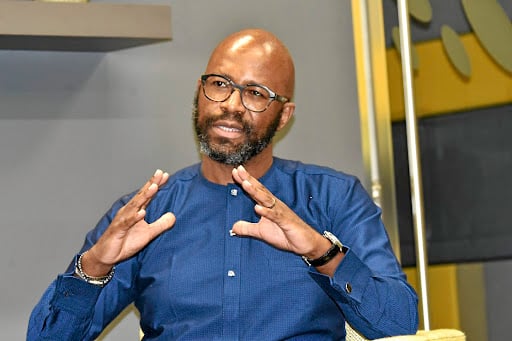The Dawn of 5G in Ghana: A Transformative Leap into the Digital Future
The MTN Group, a leading telecommunications provider in Africa, has initiated discussions with the Ghanaian government and regulatory bodies to pave the way for the introduction of fifth-generation (5G) mobile technology. Ralph Mupita, MTN Group’s Chief Executive Officer, highlighted the transformative potential of 5G during the Bright Conversations Series held in Accra. He emphasized its capacity to accelerate digital and economic growth, revolutionizing connectivity for individuals, businesses, and communities alike. This technological advancement promises to unlock new opportunities across various sectors, including education, healthcare, agriculture, and financial services.
5G technology embodies a quantum leap in connectivity, offering ultra-fast internet speeds, minimal latency, and the ability to connect millions of devices simultaneously. This enhanced capability will serve as a catalyst for innovation, particularly in areas such as artificial intelligence (AI), smart cities, digital banking, and e-commerce. For Ghana, with its young and increasingly digitally-oriented population, 5G holds significant promise. It offers the potential to empower young people through digital platforms for learning, entrepreneurship, and entertainment. Coupled with strategic investments in digital skills development, 5G can equip Ghana’s youth to participate fully in the burgeoning digital economy.
MTN, operating across 16 African markets, has made substantial investments in preparation for the 5G rollout, including network upgrades, tower modernization, and strategic partnerships for new services. The company’s commitment extends beyond mere technological deployment to ensuring that the benefits of 5G reach everyday Ghanaians. This commitment translates into investments in digital literacy programs, coding initiatives, and AI training. MTN believes that, with appropriate policies and collaborative partnerships, 5G can unlock vast opportunities across crucial sectors like education, healthcare, agriculture, and commerce.
While MTN has expressed its readiness for 5G deployment, the journey toward adoption in Ghana faces certain hurdles. Key among these are discussions regarding spectrum allocation and ensuring affordability alongside innovation. A collaborative approach between the government and the private sector is crucial to create a regulatory environment that fosters innovation while protecting consumer interests. A clear, consistent, and innovation-friendly regulatory framework is essential to attract the necessary global capital for 5G implementation.
The introduction of 5G in Ghana should not be viewed as a standalone event but rather as an integral part of a broader national vision to build a sustainable digital economy. This vision requires coordinated partnerships between regulators, operators, and local communities. Such a holistic approach will ensure that the transformative potential of 5G is fully realized, ushering in an era of accelerated digital growth and economic prosperity for Ghana.
5G’s potential to revolutionize various sectors is profound. In healthcare, it could enable remote diagnostics and surgeries, improving access to quality medical care, particularly in underserved areas. In education, it could facilitate immersive learning experiences and personalized education tailored to individual needs. In agriculture, 5G could empower farmers with real-time data on weather patterns, soil conditions, and market prices, optimizing crop yields and improving agricultural practices. In financial services, it could foster greater financial inclusion by enabling mobile banking and digital payment solutions, accessible even in remote regions. By embracing 5G and strategically leveraging its capabilities, Ghana can unlock unprecedented opportunities for economic growth, social development, and improved quality of life for its citizens.


